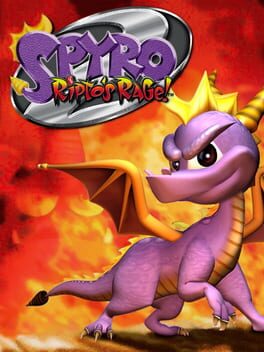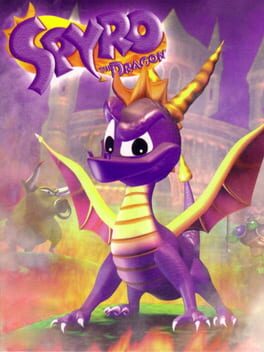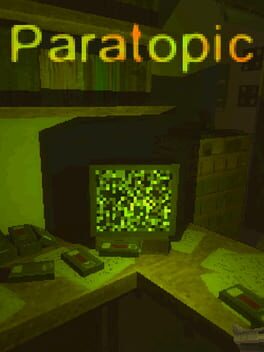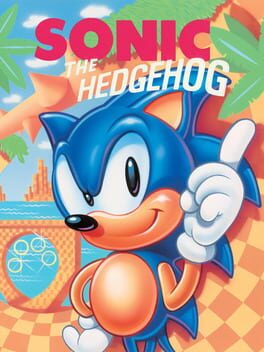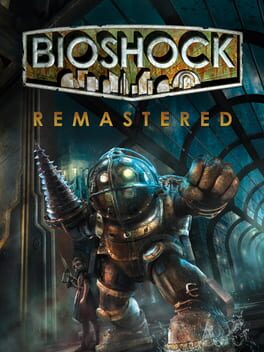Sol55
One of the greatest strengths of Spyro the Dragon lied in its simplicity — one that complimented its whimsical tone and aesthetic wonderfully, making it my go-to 3D platformer to play through whenever I just want to relax and have some fun. Ripto's Rage (or Gateway to Glimmer) retains and often expands upon the charm of the first game, however there's a catch.
It's easy to see why this was the Spyro game I had the most fond memories of as a kid; every single level has its own intro and outro cinematic which adds flavor to each world, the voice acting is comical and breathes a lot of life into the experience, and the entire thing feels a tad grander in scale than its predecessor. In addition to this, there are a handful of additions to Spyro's toolkit, the most notable being the hover and swimming, which makes Spyro feel better to control and also allows for more variety in its levels. I feel that if the new implementations had stopped there, Ripto's Rage would have been an outstanding sequel, but unfortunately it suffers from feature creep and has issues maintaining momentum.
In Ripto's Rage, there are two new forms of collectables: talismans and orbs. There are several orbs that you can obtain from each stage and the way you obtain them is through minigames that often switch up the core gameplay loop. I don't have an issue with this idea in theory as long as it's done in moderation, but here it's done in excess. The layouts of every stage are often designed with these minigames in mind, leaving the general parts of each stage to feel less intuitive than the levels of the first game on top of turning the process of collecting orbs into an exercise in tedium at points. While I enjoyed most of the minigames, the extraneous amount of them feel like additions for the sake of additions. Then there are the talismans, the MacGuffins of this game that you receive as a reward for clearing through each stage. In order to unlock the boss fight of each home world, you need the talismans of each level... until Winter Tundra, that is. I'm not sure what the logic is behind making it to where the stipulation for unlocking Ripto's Arena are orbs, but it leaves me wondering what the point of adding talismans into the game in the first place was.
There's also bloat in the form of the climbing and headbash mechanics, which you unlock in Autumn Plains and Winter Tundra respecively. I don't necessarily mind the idea of adding more tools to Spyro's toolkit (apart from climbing ladders being a strange mechanic to implement in a game where you control a dragon), however with these new mechanics comes a necessity to backtrack if you want to aim for full completion, momentarily hurting the momentum of the game in each instance this is required. The most egregious example of this the alchemist escort quest in Fracture Hills, which is not only one of the most obnoxious minigames throughout the whole game, but if you didn't know you had to come back to this level once you obtain the headbash from Winter Tundra, you would have to come back to this level later and escort the alchemist all over again just to unlock the part where you defeat the earthshapers with the assistance of Hunter. Thankfully the amount of backtracking in this game is kept fairly minimal, but I still think it's a shame that there's any at all considering that there wasn't in the first game.
Ripto's Rage is a distinctive sequel with a myriad of ideas brought to the table and while I do appreciate the experience for what it is, there's no doubt in my mind that it could have been so much more.
It's easy to see why this was the Spyro game I had the most fond memories of as a kid; every single level has its own intro and outro cinematic which adds flavor to each world, the voice acting is comical and breathes a lot of life into the experience, and the entire thing feels a tad grander in scale than its predecessor. In addition to this, there are a handful of additions to Spyro's toolkit, the most notable being the hover and swimming, which makes Spyro feel better to control and also allows for more variety in its levels. I feel that if the new implementations had stopped there, Ripto's Rage would have been an outstanding sequel, but unfortunately it suffers from feature creep and has issues maintaining momentum.
In Ripto's Rage, there are two new forms of collectables: talismans and orbs. There are several orbs that you can obtain from each stage and the way you obtain them is through minigames that often switch up the core gameplay loop. I don't have an issue with this idea in theory as long as it's done in moderation, but here it's done in excess. The layouts of every stage are often designed with these minigames in mind, leaving the general parts of each stage to feel less intuitive than the levels of the first game on top of turning the process of collecting orbs into an exercise in tedium at points. While I enjoyed most of the minigames, the extraneous amount of them feel like additions for the sake of additions. Then there are the talismans, the MacGuffins of this game that you receive as a reward for clearing through each stage. In order to unlock the boss fight of each home world, you need the talismans of each level... until Winter Tundra, that is. I'm not sure what the logic is behind making it to where the stipulation for unlocking Ripto's Arena are orbs, but it leaves me wondering what the point of adding talismans into the game in the first place was.
There's also bloat in the form of the climbing and headbash mechanics, which you unlock in Autumn Plains and Winter Tundra respecively. I don't necessarily mind the idea of adding more tools to Spyro's toolkit (apart from climbing ladders being a strange mechanic to implement in a game where you control a dragon), however with these new mechanics comes a necessity to backtrack if you want to aim for full completion, momentarily hurting the momentum of the game in each instance this is required. The most egregious example of this the alchemist escort quest in Fracture Hills, which is not only one of the most obnoxious minigames throughout the whole game, but if you didn't know you had to come back to this level once you obtain the headbash from Winter Tundra, you would have to come back to this level later and escort the alchemist all over again just to unlock the part where you defeat the earthshapers with the assistance of Hunter. Thankfully the amount of backtracking in this game is kept fairly minimal, but I still think it's a shame that there's any at all considering that there wasn't in the first game.
Ripto's Rage is a distinctive sequel with a myriad of ideas brought to the table and while I do appreciate the experience for what it is, there's no doubt in my mind that it could have been so much more.
1998
Sometimes less is more.
Spyro the Dragon was the very first video game I ever played and the original trilogy was an integral part of my childhood. While I'd like to preface this review by stating that I do have a distinct nostalgic bias for this game, I feel that it still holds up quite well in terms of presentation and level design. Spyro 1 is a simplistic approach to a collectathon platformer where your toolkit consists of a flame breath to torch enemies, a glide to traverse from one platform to another, and a charge which acts as a hybrid tool for both moving at a quicker speed and defeating enemies by knocking them out of your way. The end result is a game that is relatively laid-back, especially since you have access to all of these controls right from the very beginning of the game. It occasionally spices things up through a flight level once per home world, or through the supercharge which is introduced in the Magic Crafters home world and every level that features it is carefully designed around this mechanic and rewards exploration with it. While there's an occasionally tricky glide to make here and there or a platform to reach that requires thinking a bit outside the box with the supercharge powerup, Spyro 1 is a really relaxed platformer where you go into each stage, casually explore until you unearth all of its treasure and save all the dragons, and then move onto the next with no backtracking necessary if you want to aim for full completion. Backtracking is an element that's fairly negligible to me in a game with levels as short as this, but it's neat that there's absolutely none of it within this game when so many of its contemporaries require it for full completion. I also like how every single level in the game is tied in with their respective home world aesthetically.
I also can't talk about Spyro without bringing mention to its incredibly distinct soundtrack, which was composed by Stewart Copeland. Every single track in the game has a whimsical feel to it which compliments the art direction wonderfully, and the use of percussion really stands out. It's so satisfying to charge around as Spyro while hearing a whole bunch of awesome drum beats in the background! I've always really liked the soundtrack ever since I was a young kid, but returning back to this gives me newfound appreciation for it.
I was pleasantly surprised by how well this game held up for me. While it doesn't offer much in terms of challenge for those looking for it, it's perfect for a bit of casual platforming to unwind to after a tiring day at work, and also has a really pleasant, lighthearted tone to accompany its gameplay. One of my ultimate comfort games.
Spyro the Dragon was the very first video game I ever played and the original trilogy was an integral part of my childhood. While I'd like to preface this review by stating that I do have a distinct nostalgic bias for this game, I feel that it still holds up quite well in terms of presentation and level design. Spyro 1 is a simplistic approach to a collectathon platformer where your toolkit consists of a flame breath to torch enemies, a glide to traverse from one platform to another, and a charge which acts as a hybrid tool for both moving at a quicker speed and defeating enemies by knocking them out of your way. The end result is a game that is relatively laid-back, especially since you have access to all of these controls right from the very beginning of the game. It occasionally spices things up through a flight level once per home world, or through the supercharge which is introduced in the Magic Crafters home world and every level that features it is carefully designed around this mechanic and rewards exploration with it. While there's an occasionally tricky glide to make here and there or a platform to reach that requires thinking a bit outside the box with the supercharge powerup, Spyro 1 is a really relaxed platformer where you go into each stage, casually explore until you unearth all of its treasure and save all the dragons, and then move onto the next with no backtracking necessary if you want to aim for full completion. Backtracking is an element that's fairly negligible to me in a game with levels as short as this, but it's neat that there's absolutely none of it within this game when so many of its contemporaries require it for full completion. I also like how every single level in the game is tied in with their respective home world aesthetically.
I also can't talk about Spyro without bringing mention to its incredibly distinct soundtrack, which was composed by Stewart Copeland. Every single track in the game has a whimsical feel to it which compliments the art direction wonderfully, and the use of percussion really stands out. It's so satisfying to charge around as Spyro while hearing a whole bunch of awesome drum beats in the background! I've always really liked the soundtrack ever since I was a young kid, but returning back to this gives me newfound appreciation for it.
I was pleasantly surprised by how well this game held up for me. While it doesn't offer much in terms of challenge for those looking for it, it's perfect for a bit of casual platforming to unwind to after a tiring day at work, and also has a really pleasant, lighthearted tone to accompany its gameplay. One of my ultimate comfort games.
2018
I live for sound design of this caliber. Extremely enthralling atmosphere and a peculiar, enigmatic experience overall. Not sure if I quite felt satisfied with what it was trying to say by the end of it and I do feel some segments are dragged out a bit longer than they need to be, but it's a very unique gem of horror and I'd say it's certainly worth checking out if you can catch it on sale.
1991
"More action! More speed!" is often how the first installment in the Sonic franchise was advertised back when it was released during 1991, but does this statement actually ring true for this entry? Well, at least during Green Hill Zone it does.
The first zone was quite fun. Sonic is a bit floaty and doesn't control very tightly, but obtaining high speeds throughout the level and discovering different paths that led to monitors with rings and extra lives was cool and had me interested in seeing what the rest of zones would be like. Much to my dismay, most of the zones afterwards were designed around slow and careful platforming that placed emphasis on trial and error with sections that weren't very fun to traverse with Sonic's controls. Labryinth Zone and Scrap Brain Zone were both exercises in frustration and all I wanted was for the game to be over by those points. The 3 act structure of each zone also made each of them feel a bit bloated, especially the zones on the slower side like Marble Zone and Labyrinth Zone (which is ironic for a game that was advertised for its speed), and I feel like these could have been trimmed down into just 2 acts per zone. I have a lot of respect for this game as it was the starting point of a franchise that had a large cultural impact, but it doesn't really hold up that well in terms of level design. While I wasn't too keen on this entry, I'm curious to see if the later 2D Sonic games will improve upon the foundations laid here.
The first zone was quite fun. Sonic is a bit floaty and doesn't control very tightly, but obtaining high speeds throughout the level and discovering different paths that led to monitors with rings and extra lives was cool and had me interested in seeing what the rest of zones would be like. Much to my dismay, most of the zones afterwards were designed around slow and careful platforming that placed emphasis on trial and error with sections that weren't very fun to traverse with Sonic's controls. Labryinth Zone and Scrap Brain Zone were both exercises in frustration and all I wanted was for the game to be over by those points. The 3 act structure of each zone also made each of them feel a bit bloated, especially the zones on the slower side like Marble Zone and Labyrinth Zone (which is ironic for a game that was advertised for its speed), and I feel like these could have been trimmed down into just 2 acts per zone. I have a lot of respect for this game as it was the starting point of a franchise that had a large cultural impact, but it doesn't really hold up that well in terms of level design. While I wasn't too keen on this entry, I'm curious to see if the later 2D Sonic games will improve upon the foundations laid here.
2016
In retrospect, I feel that I should have played the original version instead of opting for the remaster on my first playthrough as there were two bugs which caused my game to stop running at numerous points - one which made the game randomly crash on occasion whenever I interacted with various machines in the game, and then another where the game would freeze frequently upon checking my map with the controller. The second issue was a huge hindrance as I tend to check my map in these sorts of games a lot, and the only fix I seemed to find was using the 'm' key on my keyboard to open up the map instead of using my controller, and even then it still froze a couple times which proved to be a mildly frustrating experience. Thankfully I saved generously so it wasn't too much of an issue, but there doesn't seem to be any kind of fix for these problems and it seems this isn't an uncommon issue for this version of the game. The only reason I didn't switch to the original despite having these issues with the remaster was because I had only noticed it once I had already cleared through a large portion of the first area of the game and I didn't particularly feel like starting back over from the beginning.
Regarding the game itself - I thought it was decent. Rapture is one of the most intriguing settings I've had the chance to explore within a video game and I like a lot of the ideas here as well as learning about how Rapture fell to ruin and anarchy through the various audio logs found throughout the game; the environmental design was nothing short of excellent (I really liked the Art Deco aesthetic) and I was a huge fan of how immersive the atmosphere was - especially during Fort Frolic, that area was awesome. Without giving too much away, I also liked how the first-person perspective was utilized in order to enhance the effect of its narrative.
The main things that dragged the experience down for me were the combat which was interesting in theory but ultimately wasn't my cup of tea in practice, no consequences for dying which meant I could use the vita-chambers as warp points, the hacking system which felt like an exercise in tedium, the morality mechanic which I felt could have been reworked entirely, and then I also felt that the game started to unravel a bit after the notorious twist of the game - especially the final fight and the entire section preceding it. I do feel as if this game was worth my time without a doubt, but I also don't feel completely satisfied with the experience. I will say though that despite my qualms with Bioshock, there is a lot that it brings to the table and I can easily see how it's acquired such a large fanbase, so would you kindly check this game out for yourself if you haven't already?
Regarding the game itself - I thought it was decent. Rapture is one of the most intriguing settings I've had the chance to explore within a video game and I like a lot of the ideas here as well as learning about how Rapture fell to ruin and anarchy through the various audio logs found throughout the game; the environmental design was nothing short of excellent (I really liked the Art Deco aesthetic) and I was a huge fan of how immersive the atmosphere was - especially during Fort Frolic, that area was awesome. Without giving too much away, I also liked how the first-person perspective was utilized in order to enhance the effect of its narrative.
The main things that dragged the experience down for me were the combat which was interesting in theory but ultimately wasn't my cup of tea in practice, no consequences for dying which meant I could use the vita-chambers as warp points, the hacking system which felt like an exercise in tedium, the morality mechanic which I felt could have been reworked entirely, and then I also felt that the game started to unravel a bit after the notorious twist of the game - especially the final fight and the entire section preceding it. I do feel as if this game was worth my time without a doubt, but I also don't feel completely satisfied with the experience. I will say though that despite my qualms with Bioshock, there is a lot that it brings to the table and I can easily see how it's acquired such a large fanbase, so would you kindly check this game out for yourself if you haven't already?
